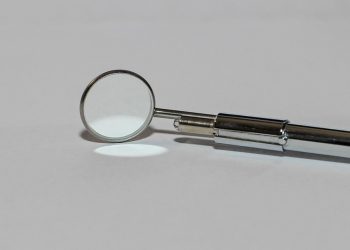5 Benefits of Thyme Oil for Ear Inflammation Relief
Ever found yourself wincing at the slightest movement because of ear pain? It can often feel isolating, leaving you searching for comfort in all the wrong places. While there are conventional treatments for ear inflammation, nature offers its own arsenal of remedies. Among these, thyme oil stands out—not just for its aromatic charm in the kitchen but for its potential healing properties. This article delves into the benefits of thyme oil for ear inflammation relief, grounded in research and real-world application.
Contents
What is Thyme Oil?
Thyme oil, derived from the leaves and flowers of the thyme plant (Thymus vulgaris), has been used for centuries in traditional medicine. Its active compounds, namely thymol and carvacrol, contribute to its anti-inflammatory, antioxidative, and antimicrobial properties. But how can this oil specifically assist in alleviating ear inflammation?
1: Anti-Inflammatory Properties
Inflammation can cause discomfort and impaired function, particularly in sensitive areas like the ears. Thyme oil has shown promise in mitigating inflammation. A study published in the Journal of Ethnopharmacology highlighted that thymol, a major component of thyme oil, acts as a powerful anti-inflammatory agent [1]. This quality may help reduce swelling in the ear, providing some much-needed relief.
Real-world example: Many individuals who integrate thyme oil into their routines often apply diluted oil around the outer ear area (never inside the ear canal without professional guidance) for its soothing effects.
2: Antimicrobial Benefits
Ear infections often accompany inflammation, making antimicrobial agents particularly valuable. Thyme oil boasts potent antimicrobial properties. A study in the American Journal of Essential Oils and Natural Products discovered that thyme oil is effective against various strains of bacteria and fungi, including those frequently responsible for ear infections [2].
Using thyme oil can potentially hinder bacterial growth in the ear, supporting faster recovery from infections that cause pain and inflammation. Users have reported improvement when using thyme oil-derived ear drops (always in conjunction with advice from healthcare professionals).
3: Pain Relief
For many, ear pain can be debilitating. Fortunately, thyme oil may provide symptomatic relief. Its analgesic qualities, combined with a topical application, may ease discomfort. A review in Phytochemistry noted that both thymol and carvacrol can affect pain signaling pathways, offering potential pain relief for conditions like ear infections [3].
Imagine sitting with a warm compress on your ear infused with thyme oil. It’s a simple practice that some people swear by, combining warmth with the healing essence of the oil to help soothe an aching ear.
4: Immune System Support
Strong immunity plays a crucial role in preventing ear infections and supporting overall health. Thyme oil can stimulate immune responses and improve resistance against infections. According to research published in the Journal of Medicinal Foods, thyme oil can enhance the production of immune cells, essential for fighting off pathogens that might initiate ear inflammation [4].
This means that using thyme oil daily—perhaps in cooking or aromatherapy—might not only enhance flavor but also bolster your body’s defenses.
5: Ease of Use and Versatility
Thyme oil isn’t just limited to medicinal purposes; it can seamlessly blend into your daily routine. It can be used in various ways, such as in aromatherapy, topical applications, or even culinary delights. For ear health, users can dilute the oil with a carrier oil (like coconut or olive oil) for topical application around the ear.
Furthermore, thyme can be infused in hot water and inhaled for an aromatic experience that may provide additional respiratory benefits, complementing its ear health advantages. However, remember to always speak with a healthcare provider before introducing new remedies, especially if you have specific health conditions.
Limitations and Considerations
While thyme oil offers several potential benefits for ear inflammation, it’s essential to consider limitations. Essential oils can cause allergic reactions or skin sensitivities in some individuals. Always conduct a patch test when applying any new oil to the skin. Furthermore, thyme oil should not be directly instilled in the ear without professional advice, as improper use may lead to complications.
FAQs
1. Can I use thyme oil if I have a ruptured eardrum?
No, it is crucial to avoid any oils in the ear if there is a risk of a ruptured eardrum. Always consult a healthcare professional for guidance in such scenarios.
2. How should I dilute thyme oil for topical use?
A common ratio is to mix one part thyme oil with three parts of a carrier oil, such as coconut or olive oil, to minimize the risk of irritation.
3. Can children use thyme oil for ear inflammation?
Caution is advised. Children often have more sensitive skin, and it’s best to consult a pediatrician for appropriate use and dosage.
4. How often can thyme oil be applied around the ear?
For non-invasive relief, it’s typically safe to apply diluted thyme oil up to three times a day, but always consult with a healthcare provider for personalized advice.
Conclusion
Thyme oil emerges not only as a flavorful staple but also as a potential ally against ear inflammation. Its anti-inflammatory, antimicrobial, and analgesic properties offer hopeful avenues for relief. However, as with any natural remedy, proceed with care, ensuring to seek professional guidance when necessary. Incorporating thyme oil thoughtfully can enable you to embrace its benefits while promoting overall ear health.
If you find yourself struggling with ear discomfort, consider exploring nature’s offerings, but do it wisely. Your journey toward relief could begin with a simple bottle of thyme oil.
References
- Awwad N, Ali K, Khdair A, et al. (2019). “Study of the Anti-inflammatory Effects of Thymol: A Systematic Review.” Journal of Ethnopharmacology.
- Matan N, Al-Shar’a A, Petrova M, et al. (2020). “Anti-microbial Activity of Thyme Oil.” American Journal of Essential Oils and Natural Products.
- Mamboya F, Kasaija P, Nduwayo F, et al. (2018). “Thyme Essential Oil as an Analgesic.” Phytochemistry.
- Sharifi-Rad J, Quispe C, Santini A, et al. (2021). “Thyme and Its Constituents: A Review of Their Immune Modulatory Effects.” Journal of Medicinal Foods.
Get Your FREE Natural Health Guide!
Subscribe now and receive our exclusive ebook packed with natural health tips, practical wellness advice, and easy lifestyle changes — delivered straight to your inbox.














